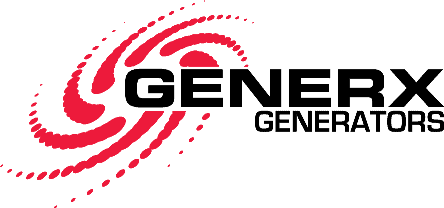Choosing a Generator
Not all generators are created equal. Some can power your entire home or business while others can only provide power for a few appliances. You may need to store fuel on-site or run electrical cords to your devices depending on what you choose. We created this quick overview for you to reference so you can make an informed decision and to help you keep everything straight as you research options.
Fuel Type
All generators need fuel to operate. Most residential units will run on natural gas or propane, and this largely depends on what is available where you live. Diesel generators are typically used at larger homes or at businesses.
Natural Gas
You won’t need to worry about refueling because your generator will be hooked up to a natural gas line. It is cleaner than other fuel types and is the most popular choice for homeowners.
Propane
If you can’t access a natural gas pipeline, you’ll need to look for an alternative, like propane. You’ll need to store the propane, and many people recommend installing a fuel tank for this purpose. It will allow you to plan ahead and store fuel so you are always prepared for the worst case scenario. However, if the propane runs out so will your power.
Diesel
Used in all types of generators from portable to industrial, diesel is a very common fuel type for backup power systems. But it has a major drawback: storage. Like with propane, how long you’ll have power when you use diesel depends on how much fuel you have on hand. You can’t stock up on diesel because it has a shelf life that is shortened by high temperatures. In Florida, you’d probably be able to store diesel for 6 to 12 months before sediment would start to build up rendering it unusable.
Bi-Fuel
A bi-fuel generator from Generac uses diesel to start and then switches to blend of natural gas and diesel. This extends the run-time of the generator and these generators are typically used in commercial or industrial operations.
Cooling System
To prevent the system from overheating your generator will have a cooling system. For the most part, residential generators are air-cooled.
Air-Cooled
These generators rely on fans to cool the engine. This does produce noise and is a factor to consider when evaluating your options. Generac’s Guardian Series are air-cooled.
Water-Cooled
An enclosed radiator system cools off the engine. It is more common to see this type of generator at larger homes or businesses that require more power. They’ll be quieter than their air-cooled counterparts, but maintenance is trickier. The QuietSource series from Generac is a good example of a water-cooled generator
Installation Type
If you want a complete overview of the differences, check out this post about portable vs standby generators. The biggest difference is that with a portable generator you can go out and buy it today while the installation process for a standby generator takes about 3 days on-site. Here are a few other factors to consider.
Standby
Permanently installed at your home, a standby generator is a reliable backup power source and provides electricity to your entire house. You don’t need to think about turning it on, running electrical cords, or deciding which rooms and appliances will be powered during an outage.
Portable
Easy to move and take with you on camping trips, portable generators are a good short-term solution. If you are looking to power your home during an outage, you’ll have to pick and choose which appliances you’ll hook up to the generator.
Still Have Questions?
Give us a call. We’re happy to help sort out any questions you have about fuel type, how generators work, and which is the right option for you.
Give us a call at:
- (727) 938-8473
- (813) 814-5900
- (941) 505-1212
Or contact us online or via email (Sales@FixMyGen.com) so we can help you understand your options and next steps.

